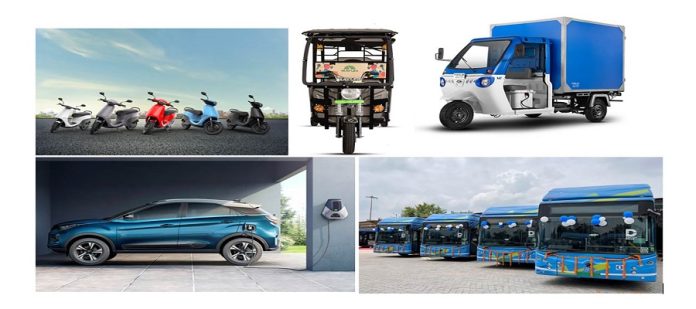In recent years, Electric Vehicles (EVs) have witnessed a substantial surge in popularity due to their eco-friendliness and enhanced efficiency compared to conventional fuel-powered vehicles. This transformation can be attributed to advancements in battery technology, the development of robust charging infrastructure, and the ever-increasing consumer demand for sustainable transportation solutions. India, being the third-largest automobile market globally in terms of sales, surpassing Germany and Japan, plays a significant role in this paradigm shift. The automotive sector holds a crucial position in India’s economy, contributing 7.5% to its GDP and generating numerous employment opportunities. According to the Economic Survey, the Electric Vehicle market is projected to witness a remarkable compound annual growth rate (CAGR) of 49% from 2022 to 2030, with an estimated annual sales volume of 10 million EVs by 2030. Moreover, the EV industry aims to create around 50 million direct and indirect job opportunities by 2030, highlighting its potential as a major employment generator in the country.
The Indian government is committed to the growth of the EV sector, aiming for a 30% electrification target by 2030. In order to provide support, the government has implemented a series of incentives and policies, including allocating resources within the FY24 Union Budget. These measures are specifically designed to foster electric vehicle production, facilitate the adoption of hydrogen fuel, and promote advancements in emerging technologies. These measures highlight the government’s proactive approach to creating an enabling environment for the EV industry, aligning with India’s sustainable development goals and demonstrating their commitment to reducing emissions, improving energy efficiency, and transitioning to a greener transportation ecosystem.
Renowned Indian automakers such as Tata Motors and Mahindra & Mahindra have taken significant strides in manufacturing electric vehicles (EVs), while numerous international companies have also ventured into the Indian market. Swedish luxury car manufacturer Volvo Cars is actively considering establishing a new EV manufacturing facility in the country. Additionally, Tesla’s plans to set up its own manufacturing plant in India have generated considerable excitement. The entry of Tesla into the Indian EV industry holds great potential for both the sector and the Indian economy. This move is expected to fuel growth, stimulate innovation, and further accelerate the adoption of EVs across the country. The combined efforts of established Indian manufacturers and the entry of international giants like Tesla demonstrate the increasing interest and investment in the Indian EV market, paving the way for a more sustainable and electrified future.
India’s electric vehicle market is on the cusp of a significant upswing, poised for substantial growth in the coming years. This growth can be attributed to several factors, including supportive government policies, rising consumer awareness regarding environmental sustainability, and notable technological advancements. The country is well-positioned to transition towards a more eco-friendly and sustainable mode of transportation. Moreover, the recent discovery of substantial lithium-ion reserves in Rajasthan holds promising implications for the Indian economy. The abundance of these reserves has the potential to fulfil approximately 80% of India’s lithium-ion requirements, further bolstering the nation’s electric vehicle aspirations and reducing dependence on imports.









